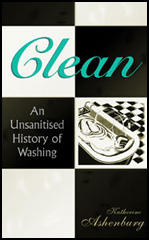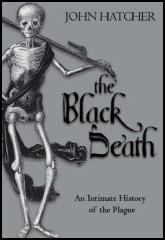Medical History

Title: Clean: An Unsanitised History of Washing
Author: Katherine Ashenburg
Editor:
Publisher: Profile
Price: £12.99
Bookshop: Amazon
Spartacus Website: Disease in the 14th Century
Category:
Personal hygiene is something that only other people never seem to get quite right...Yet in this fascinating history of washing our bodies Katherine Ashenburg discovers that cleanliness exists above all in our minds: it is a cultural creation and a constant work in progress... Napoleon once wrote in a love letter to Josephine 'I return to Paris in five days. Stop washing.' To smell like a human was not always the misdemeanour it is today. Body odour was in fact an important factor of sex and courtship, considered by some to be a powerful aphrodisiac, as we see in Napoleon's letter. Contrary to what we like to think, no bodily odour is innately disgusting, instead it is our noses which adapt to fit our beliefs.The Romans would bathe in company and daily. Later, Europe underwent four centuries without a bath. Was it the threat of diseases like syphilis that it feared in the soapy water? Religion links the act of washing with forgiveness and regeneration. We wash the bodies of dead loved ones because somehow we imagine it as the end of the old and the beginning of the new. The history of washing our bodies reveals much about our intimate selves, about how we want to be seen and what we desire most...In this gripping new history, Ashenburg searches for clean and dirty in plague-ridden streets, hospitals, battlefields and makeshift water closets. In the bizarre prescriptions of history's doctors, the eccentricities of famous bathers and the hygienic peccadilloes of great writers we see the twists and turns that have brought us to our own, arbitrary notion of 'clean'.

Title: The Black Death
Author: John Hatcher
Editor:
Publisher: Weidenfeld & Nicolson
Price: £20.00
Bookshop: Amazon
Spartacus Website: Disease in the 14th Century
Category:
The Black Death remains the greatest disaster to befall humanity, killing about half the population of the planet in the 14th century. John Hatcher recreates everyday medieval life in a parish in Suffolk, from which an exceptional number of documents survive. This enables us to view events through the eyes of its residents, revealing in unique detail what it was like to live and die in these terrifying times. With scrupulous attention to historical accuracy, John Hatcher describes what the parishioners experienced, what they knew and what they believed. His narrative is peopled with characters developed from the villagers named in the actual towns records and a series of dramatic scenes portray how contemporaries must have experienced the momentous events.
